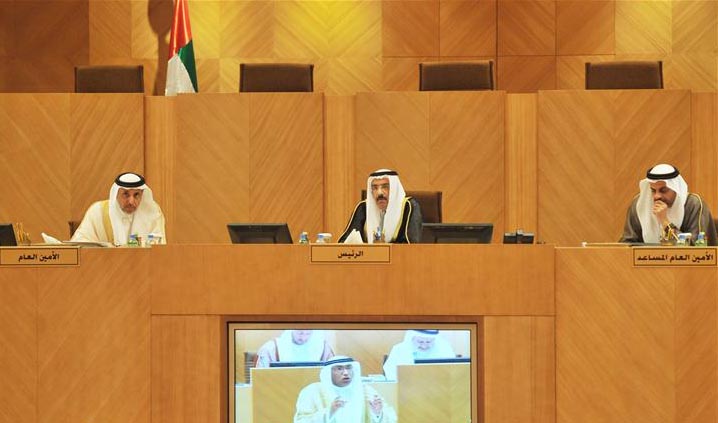ID :
327012
Thu, 05/01/2014 - 10:56
Auther :
Shortlink :
https://www.oananews.org//node/327012
The shortlink copeid
UAE FNC passes draft law regarding anti-money laundering and combating the financing of terrorism

Abu Dhabi (WAM): The Federal National Council (FNC) yesterday passed the federal draft law No.(4) for 2002 regarding anti-money laundering (AML) and combating the financing of terrorism.
The session was chaired by Mohammed Ahmed Al Murr, Speaker of Federal National Council (FNC), and attended by Obaid bin Humaid Al Tayer, Minister of State for Financial Affairs, and Sultan bin Nasser Al Suwaidi, Governor of the UAE Central Bank.
The law sets out the definition for the offence of money laundering: Where any person intentionally commits or assists in the commission of any of the following acts in respect of property, derived from any of the offences stated in provisions of the law, such person shall be considered a perpetrator of the Money Laundering offence:
(a) the conversion or transfer or deposit of Proceeds, with intent to conceal or disguise the illicit origin of such Proceeds;
(b) the concealment or disguise of the true nature, source, location, disposition, movement, rights with respect to, or ownership of proceeds.
(c) the acquisition, possession or use of such proceeds.
Property' is defined widely and means, assets of every kind, whether corporeal or incorporeal, moveable or immoveable, and legal documents or instruments evidencing title to those assets or any rights related thereto'.
The law also stipulates that outbound and inbound travellers should declare the amount of money, convertible financial instruments, or precious metals and gems they hold under the disclosure regulation to be issued the UAE Central Bank.
As for terror financing, the offence is made out in relation to anyone who provides, collects, carries or transfers money directly or indirectly to any society, organisation, centre, group, gang or persons, with the intention that they are to be used, partly or wholly, to finance terrorist acts whether these acts take place or not.
The law also defines mechanisms to implement the law such as establishment of the Anti-Money Laundering and Suspicious Cases Unit and Financial Information Unit at the central bank. Under the regulation, all banks, moneychangers and other financial institutions have a personal obligation to report any unusual transactions to the AMLSCU.
Individuals and establishments are subject to severe penalties for violation of the anti-money laundering legislation. An establishment found guilty under the law is subject to a fine between Dh 50,000 up to 500,000. A person found guilty will face a jail term not more than ten years and a fine between Dh 100,000 and 500,000, or both penalties. – Emirates News Agency, WAM





